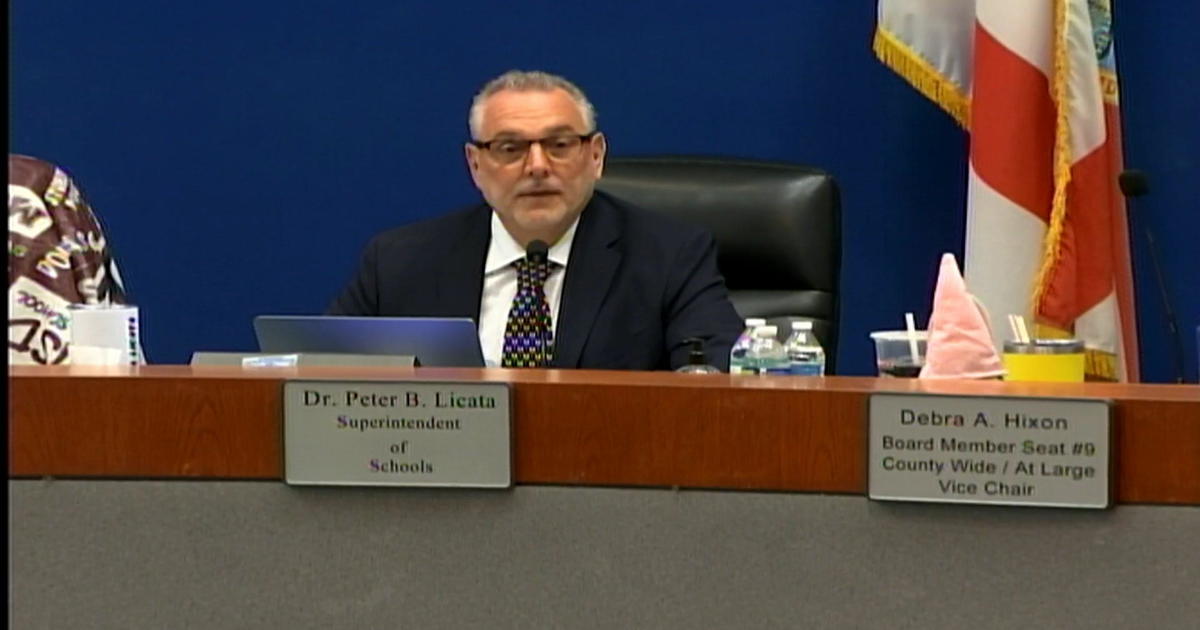NSU To Predict Winner Of Presidential Race Via Shark Race
Follow CBSMIAMI.COM: Facebook | Twitter
DAVIE (CBSMiami) – Does the Presidential Election have you confused? Tired of hearing the "pundits" pontificate on which candidate is going to win and why? Well, forget the latest poll, the experts at Nova Southeastern University are using sharks to predict the outcome of the race. Tagged shortfin mako sharks are being used for NSU's Shark Race to the White House.
The sharks, part of an ongoing marine science research on shark migrations, are the latest animal prognosticators to predict an important event. Sort of like Punxsutawney Phil, the famous groundhog who predicts how much longer winter will last and Paul the Octopus, who predicted the winner of the World Cup in 2010.
But now it's the Clinton Shark and the Trump Shark, each with its own motto. Clinton's is "Swimming Stronger Together" and Trump's is "Mako America Great Again."
They were both caught, tagged, and released off Rhode Island on September 26th, the same day the human candidates took the stage for their first nationally televised debate.
Whichever shark travels the most miles by November 1st is the winner.
As of Friday October 28th, the Trump shark is ahead having traveled 439 miles to Clinton's 358.
The order in which the sharks were named and tagged was based on the scientific laws of mathematical probability – in other words, researchers flipped a coin. The lucky candidate to have their shark tagged first was Hillary Clinton. You can follow both sharks in near real-time online via NSU's Shark Race to the White House website.
These sharks are contributing to the ongoing research by NSU scientists as they learn more about mako sharks in order to better protect them.
"For me, it's not about politics, it's about the research," said NSU President Dr. George Hanbury. "The work being done by NSU's research scientists is vital. It's providing incredible opportunities for our students and at the same time, the lessons we're learning are being used to better protect these animals for future generations."
The two sharks are part of the 52 mako sharks in total that have been tagged by the NSU research team. It's all part of an ongoing effort to better understand migration patterns, which would hopefully result in better management of the global shortfin mako population.
Shortfin mako sharks are considered vulnerable, or one step below endangered, on the International Union for Conservation of Nature's Red List of Threatened Species.



